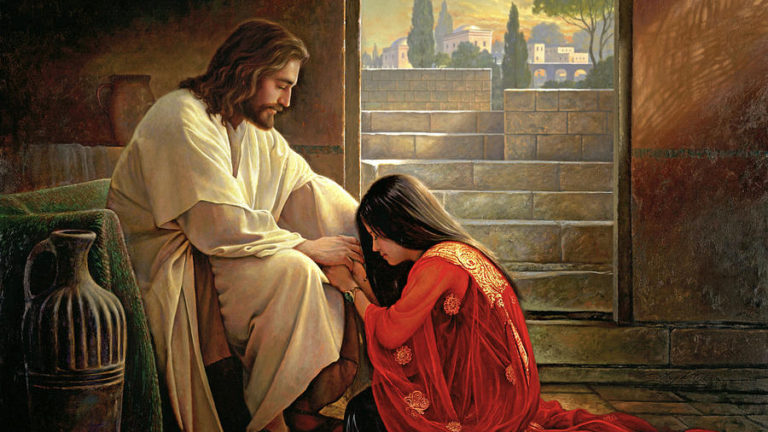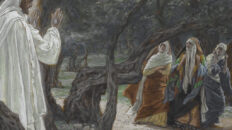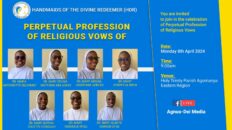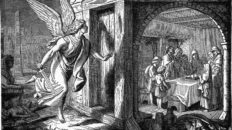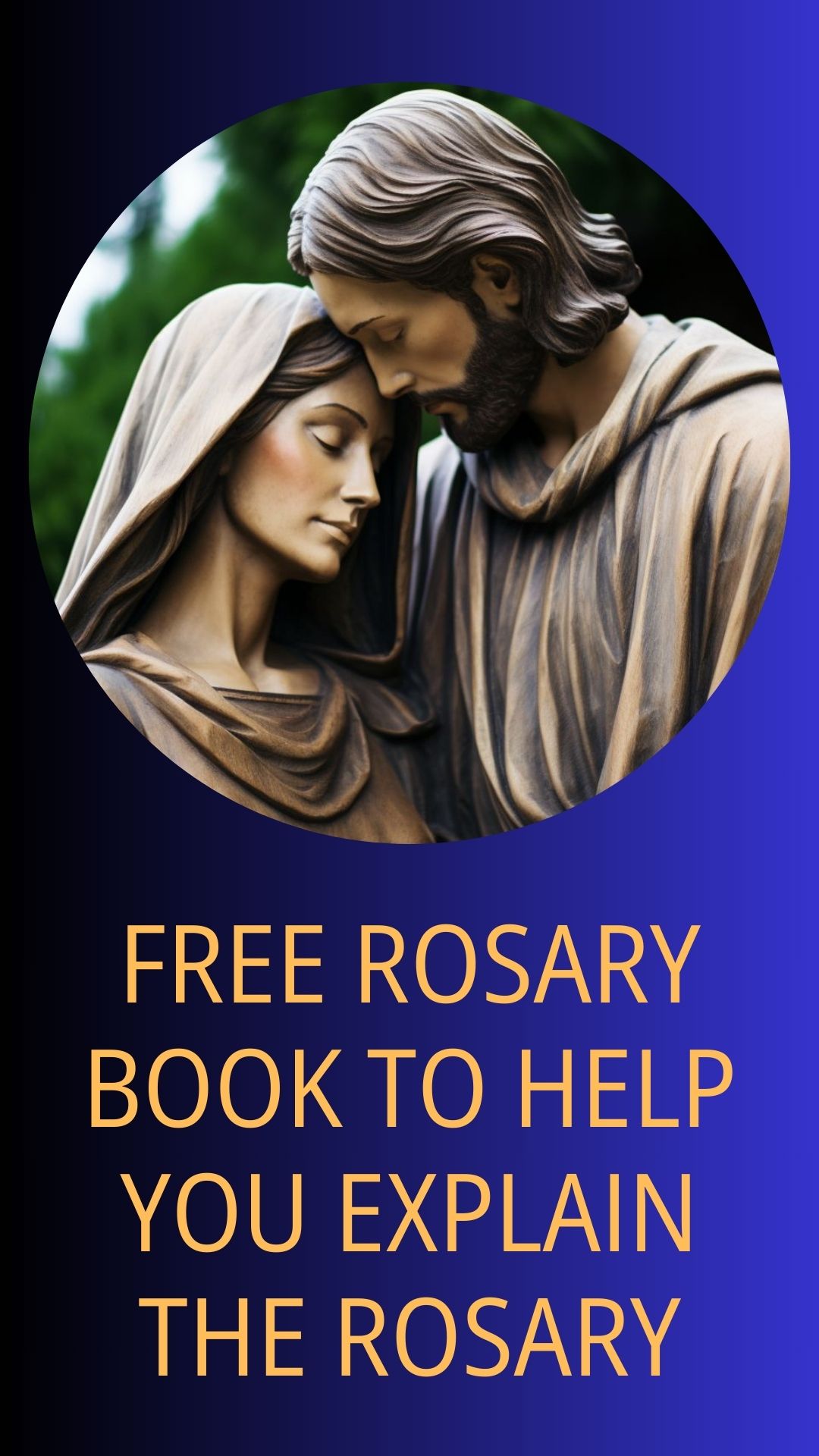THEME: LOVE YOUR ENEMIES
READINGS: 1 Samuel 26:2,7-9,12-13,22-23/ 1 Corinthians 15:45-49/ Luke 6:27-38
7th Sunday in Ordinary Time
To love one’s neighbour as oneself is demanding enough. So, to love one’s enemy is certainly very demanding. It is, however, not an impossible task to fulfill. Already in the Old Testament, that is, centuries before Christ’s commandment, David practiced it (cf. 1 Sam. 26:2, 7-9).
David’s forgiveness of his enemy, King Saul, teaches us that love of our enemies begins with and it is sustained by forgiveness. That David forgave King Saul who was on a mission to kill him shows how great David’s forgiveness was. Such forgiveness is only possible when, among other things:
- One appreciates how much God has forgiven him/her. We do not have a record of David’s sins up to this time of his life. However, in the latter part of his life, there are records of his sins of adultery with Uriah’s wife, of causing the death of Uriah and of marrying Uriah’s wife (cf. 2 Sam.11-12). David’s appreciation of God’s mercy despite these heinous crimes tells us that he was a man who was overwhelmed by God’s forgiveness (cf. Psalm 51). We would, likewise, be moved to forgive our enemies if we appreciate the extent to which God forgives us.
- One appreciates that every human enemy is “the Lord’s anointed”. When Abishai, David’s assistant, requested to kill King Saul, David denied the request, saying: “Do not destroy him, for who can put forth his hand against the Lord’s anointed” (1 Sam. 26:9). Often, “the Lord’s anointed” is understood as a man/servant of God or a leader. However, since all Christians have been anointed at baptism as children of God, every Christian is the Lord’s anointed. Furthermore, in a broader sense, every human being is God’s anointed because he/she is a child of God the Creator. Therefore, the person we consider as our enemy is also considered by God as His child. Consequently, we should not harm him/her.
- One is convinced that an advantage over the enemy is by grace. David realized that the advantage he had over King Saul who was asleep was not something that resulted from his intelligence or strength. He knew it was by God’s grace. Thus, David told the king: “the Lord gave you into my hand today, and I would not put forth my hand against the Lord’s anointed” (1 Sam. 26:23). Likewise, we would not hurt our enemies if we believe that our advantage is a moment of grace given by God to do good and not to harm. It is a moment of grace by which God wants us to demonstrate how we want Him to later judge us: “forgive us our trespasses as we forgive those who trespass against us” (Matt. 6:12). This leads us to the next point:
- One believes that God is the ultimate judge and rewarder. When David had spared the life of the king and he had gone out of the cave, he shouted out from a distant: “Here is the spear, O king! … The Lord rewards every man for his righteousness and faithfulness” (1 Sam. 26:22-23). Like David, we should deal mercifully with our enemies, since ultimately God will judge us all.
If the story of David seems historically far remote from us, then let us refer to a more recent story. It is a story about a mother whose only child was shot dead but she eventually showed unconditional forgiveness to her son’s killer and invited him to live next door after his release from prison.
The mother’s name is Mrs. Mary Johnson. She was 59 years of age at the time the story was written in 2011. She then lived in the apartment adjoining the home of the then 34-year-old Mr. Oshea Israel (who killed his son) and they share a porch.
“In February 1993, Mrs. Johnson’s son, Laramiun Byrd, 20, was shot in the head by the then 16-year-old Israel after an argument at a party in Minneapolis, Minnesota.
“Israel, who was involved with drugs and gangs, was tried as an adult and sentenced to 25 and a half years. He served 17 before being released. He now lives back in the neighbourhood where he grew up – next door to the mother of the young man he murdered.
“Mrs. Johnson said she originally wanted justice and to see Israel locked up for what he had done. She said: ‘My son was gone. I was angry and hated this boy, hated his mother.’
“'[The murder] was like a tsunami. Shock. Disbelief. Hatred. Anger. Hatred. Blame. Hatred. I wanted him to be caged up like the animal he was.’
“She decided to found a support group and counselled mothers whose children had been killed and encouraged them to reach out to the families of their murderers, who were victims of another kind.
“’Hurt is hurt, it doesn’t matter what side you are on,’ she said
Then just a few years ago, Mrs. Johnson, who is “teacher and devout Christian, asked if she could meet Israel at Minnesota’s Stillwater state prison. She said she felt compelled to see if there was a way in which she could forgive her son’s killer.
“At first he refused but then nine months later, changed his mind. Israel said he was shocked by the fact she wanted to meet him.
Mr. Israel said: “I believe the first thing she said to me was, ‘Look, you don’t know me. I don’t know you. Let’s just start with right now.’… ‘And I was befuddled myself.’
“The pair met regularly after that. When Israel was released from prison around 18 months ago, Mrs. Johnson introduced him to her landlord – who with her blessing, invited Israel to move into the building.
“Mrs. Johnson and Israel are now close friends, a situation that she puts down to her strong religious beliefs but says she also has a selfish motive.
“She said: ‘Unforgiveness is like cancer. It will eat you from the inside out. It’s not about that other person, me forgiving him does not diminish what he’s done. Yes, he murdered my son – but the forgiveness is for me.’
“Mary Johnson even wears a necklace with a two-sided locket – on one side are photos of herself and her son; the other has a picture of Israel.
“Israel admits he still struggles with the extraordinary situation he finds himself in….
“He visits prisons and churches to talk about forgiveness and reconciliation. Mrs. Johnson often joins him and they tell their story together.
“He added: ‘A conversation can take you a long way.'”
Mrs. Johnson models for us the heavenly Father who forgives us despite we crucifying His only Begotten Son. She teaches us that if an enemy who commits such a heinous crime of killing an only child can be forgiven, then many of the reasons for which we still consider others as our enemies can easily be forgiven. Finally, she teaches us forgiveness is for the good of those who forgive. Let us, therefore, forgive our enemies and love for them will flow into our hearts. Amen.
By Very Rev. Fr. John Louis

